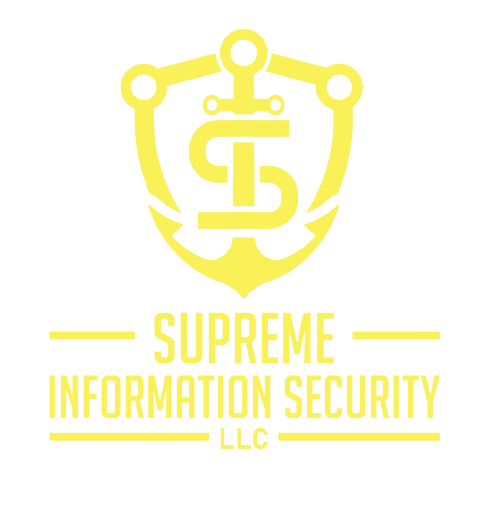- Certifications
FIND YOUR COURSE
CERTIFICATIONS
- Insights
- Company
EC-Council Certification Courses Training
- EC-Council Certification Courses Training Overview
- Additional Information
 EC-Council is a global leader in cybersecurity training and education. Their certification training courses hold tremendous value and can truly advance one’s career in the field of IT security. They have managed to certify working professionals across 140 countries through over 900 accredited training partners around the world. Koenig Solutions is an EC-Council Accredited Training Center to provide their popular courses such as CEH, ECSA, LPT, CHFI certification courses worldwide. Check out the dates below to enrol in the course of your choice from EC-Council.
EC-Council is a global leader in cybersecurity training and education. Their certification training courses hold tremendous value and can truly advance one’s career in the field of IT security. They have managed to certify working professionals across 140 countries through over 900 accredited training partners around the world. Koenig Solutions is an EC-Council Accredited Training Center to provide their popular courses such as CEH, ECSA, LPT, CHFI certification courses worldwide. Check out the dates below to enrol in the course of your choice from EC-Council.
EC-Council provides a variety of different cybersecurity courses for working professionals to upskill themselves and grow in their careers. These EC-Council certification training courses are specialized in information security and cybersecurity for multiple job roles. Programmers and developers, IT consultants, analysts, as well as managers, can complete these certification training courses to gain expertise in risk management, cybersecurity, and information security.
There are different levels of certifications that are offered by the EC-Council. These levels showcase the amount of expertise one has in a certain field. The levels are targeted to different job roles as well. This segregation in the levels of certifications can really help working professionals expand as well as build on their skill set. This segregation also helps recruiters in organizations understand the level of expertise a potential employee has when hiring.
The different levels of certifications offered by EC-Council which are:
- Advanced level certification training courses
- Core level certification training courses
- Fundamental level certification training courses
- Management level certification training courses
- Security Awareness level certification training courses
- Specialist level certification training courses
Popular EC-Council Certification Courses
EC-Council certification training courses hold immense value in the global tech community. A certified EC-Council practitioner has a lot of job opportunities available because they are nothing short of a standard of merit. Some of the most popular courses offered by EC-Council are:
- Certified Ethical Hacker (CEH)
- EC-Council Certified Security Analyst (ECSA)
- Licensed Penetration Tester (LPT)
- Computer Hacking Forensic Investigator (CHFI)
- Certified Secure Programmer .NET
Certified Ethical Hacker (CEH)
The Certified Ethical Hacker (CEH) is the most popular course offered by EC-Council. The certification training course is best suited for those who want to start their career in penetration testing. The entry level certification course trains candidates on how to find vulnerabilities in an organization’s servers, network systems and applications and exploit them, the same way a real hacker would. Then, the Certified Ethical Hacker will create detailed reports and present the organization with ways in which they can implement security measures to make sure these vulnerabilities cannot be exploited.
The Certified Ethical Hacker certification training course gives a hands-on approach to learning where they learn how to simulate real attacks in real-time, and pass without detection. The applicants for the CEH certification are those who already have a strong hold in more than one programming language and understand or have some experience working with information security.
This ECSA certification is a prerequisite for those who want to pursue the LPT (Licensed Penetration Tester) certification because it provides prospective candidates with the foundational level of knowledge and expertise they need for their LPT certification.
Certified Penetration Testing Professional – CPENT Certification Training Course Overview
This training program teaches participants on how to perform an effective penetration test in an enterprise network environment that must be attacked, exploited, evaded, and defended. For those who have only been working in flat networks, CPENT’s live practice range will teach participants to take their skills to the next level by teaching the methods of how to pen test a IoT systems, OT systems, how to write your own exploits, build your own tools, conduct advanced binaries exploitation, double pivot to access hidden networks, and also customize scripts/exploits to get into the innermost segments of the network.
Licensed Penetration Tester (LPT)
The Licensed Penetration Tester (LPT) certification training course is considered to be one of the most rigorous training certification courses in the field of cybersecurity and information security. This certification will recognize all those who complete it as masters in penetration testing. The Licensed Penetration Tester (LPT) certification holders have the expertise to perform multiple types of pen tests and find all vulnerabilities. Certificate holders also have knowledge on all the regulations and compliance laws.
To be applicable for a Licensed Penetration Tester (LPT) certification, working professionals need to have an active certification as a EC-Council Certified Security Analyst. They also need a minimum of two years of experience as a professional pen tester.
Computer Hacking Forensic Investigator (CHFI)
The Computer Hacking Forensic Investigator (CHFI) training certification course is for those who want to become masters in computer forensics and analysis. The CHFI training course covers multiple parts of information security and analysis. The certificate holders are proficient in various techniques such as footprinting, scanning, recon, collection and preservation of evidence, and more.
The certification is for security analysts and system server administrators who want to gain more analytical knowledge of various processes. People who work with the law enforcement can also find forensic analysis for cyber threats beneficial to their career.
Certified Secure Programmer .NET
A Certified Secure Programmer .NET certification training course is created to help app and software developers who want to create secure applications that cannot be hacked into. The certification training course is to teach developers how to code securely, so the post-development process of risk management and information security becomes a lot simpler. It is a preventative and reactive approach to coding and development of applications. The certification showcases the best practices developers and IT managers need to follow in order to create secure applications at an expert level across multiple domains.
Who can take up EC-Council Training?
There are many job roles that can take up EC-Council courses. But, anybody who wants to kick start their career in the Cybersecurity domain can also take part in these courses to grow in their careers.
- Penetration Tester
- Vulnerability Analyst
- Security Information Assurance Analyst
- Technical Security Analyst
- Information Security Manager
- Risk and Remediation Manager
- Systems Administrator
- Cybersecurity Network Analyst
- Cyber Security Vulnerability Analyst
- Security Consultant
- Insider Threat Analyst
- Security Architect, Manager
- Application Security Analyst
- Cyber Security System Engineer
- Software Security Analyst
- Network Analyst
- Information System Security Officer
- SOC Security Analyst
- Cyber Security Incident Response Engineer
- Technical Operations Network Engineer
- IT Security Administrator
Reasons to choose EC-Council Certification Courses from Koenig
- A comprehensive portfolio of EC-Council certification courses spread across multiple levels
- Begin your Cybersecurity career with Certified Ethical Hacker (CEH) from EC-Council and grow in your profession with other related IT security certifications
- Expert Cybersecurity instructors and EC-Council iLabs access to clear your relevant examinations
- EC-Council Certification course material prepared by SMEs with regular content updates
- Koenig Solutions is an EC-Council Accredited Training Center to deliver their widely-recognized courses worldwide
- Get dates spread across weekdays and weekends for the convenience of working professionals
- Get access to EC-Council iClass sessions and iLearn for both classroom and self-paced training
- Stay ahead of your non-certified counterparts and be part of the new norm by getting certified with EC-Council certification courses
Benefits of EC-Council Certification Training
- Showcases your commitment to your profession by gaining a industry-recognized Cybersecurity certification training
- Certificate holders become a part of a prestigious global community after they complete a certification training course offered by EC-Council
- Working professionals gain a recognized certificate, thereby improving their chances of finding gainful employment
- Working professionals who are EC-Council certificate holders will also receive a significant salary raise as compared to their non-certified peers. According to job portals worldwide, a professional with EC-Council certification earns in the range of USD 74,000 to 117,000 per annum.
- It gives security measures a different perspective altogether because certified individuals learn how to think like a hacker. This way companies can take a proactive approach to their cybersecurity instead of a reactive one
- Since the EC-Council is the world’s largest certification community in the field of information, IT and cybersecurity, completing a EC-Council certification training course and gaining a certification can really help to advance one’s career
- Be part of a business landscape that is more security-oriented where the demand for job roles for cybersecurity domain will be at an all-time high
BROWSE BY
CATEGORY
4 Course(s) Found
Certified Ethical Hacker v12
Certified Penetration Testing Professional
Certified Secure Computer User
Certified SOC Analyst-CSA
Certified Ethical Hacker v12
Certified Penetration Testing Professional
Certified Secure Computer User
Certified SOC Analyst-CSA
About Supreme Information
Supreme Training, a leading provider of comprehensive and cutting-edge IT training solutions. We are dedicated to empowering individuals and organizations with the knowledge and skills needed to thrive in today’s dynamic technology landscape.
SOLUTIONS
-
Value of Training
-
Group Training
-
Training Tools & Resources
-
Industries
-
Government
© 2023 Supreme Information Security LLC
proudly support with ♥ by SP SYSTEMS & NET SOLUTIONS

